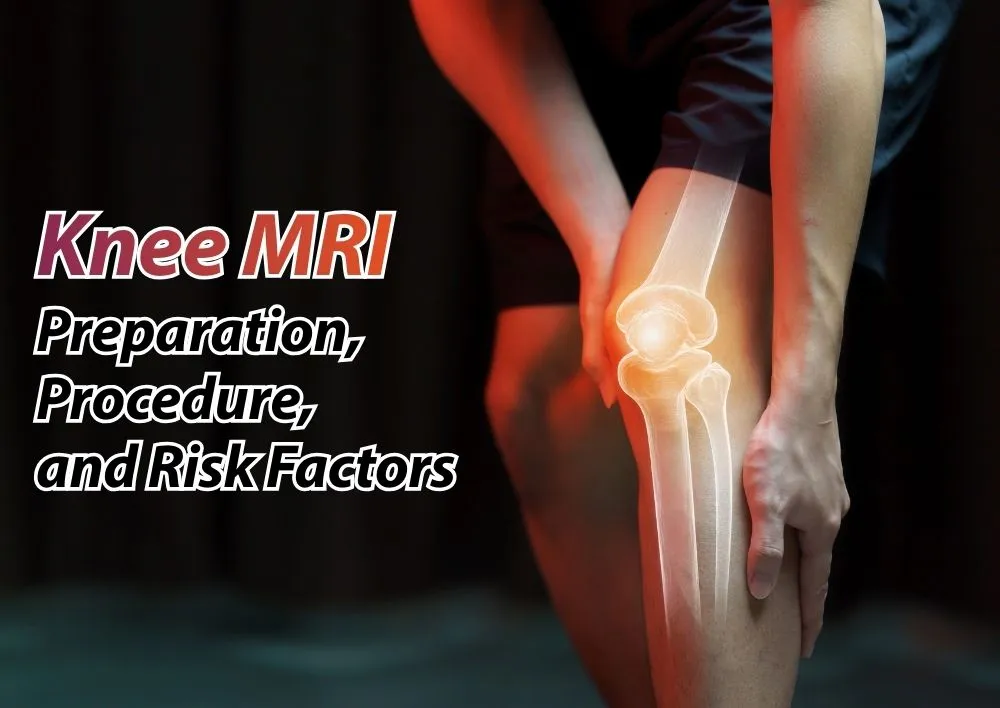Menopause and Hormone Replacement Therapy: What You Need to Know
Menopause is a natural biological process that indicates the ending of a woman's reproductive years. It occurs when the ovaries discontinue the production of estrogen and progesterone, which are hormones vital for regulating menstruation. Generally starting between ages 45 and 55, menopause may manifest earlier or later. Hormone Replacement Therapy (HRT) stands out as a widespread option for women seeking relief from menopausal symptoms. In this blog post, we will delve into pre-menopause, menopause, the associated symptoms, and the role of Hormone Replacement Therapy.
Miracles Apollo Cradle, a prominent menopause clinic in Gurgaon, provides a comprehensive array of services for women navigating through menopause or seeking information about treatment. The clinic's experienced team of menopause doctors is committed to delivering personalized care and support, aiding women in managing symptoms, and making informed health decisions.
If you're in search of the premier menopause clinic to address your symptoms and enhance your quality of life, please don't hesitate to contact us.
Understanding Premenopause
Premenopause, the transitional phase before menopause, typically begins in the mid-30s and continues for several years. Throughout this period, women experience a gradual reduction in the production of estrogen and progesterone, leading to a range of symptoms. The severity of these symptoms varies among individuals.
Common Symptoms of Premenopause Include:
-
Irregular periods
-
Hot flashes and night sweats
-
Mood swings
-
Vaginal dryness
-
Difficulty sleeping
These indications can manifest mildly or severely, showcasing the individualized nature of premenopausal experiences.
What is Menopause?
Menopause, a natural process indicating the ending of menstruation and fertility, is confirmed when a woman completes 12 consecutive months without a menstrual period. This phase involves a gradual decline in the ovaries' production of estrogen and progesterone, resulting in various symptoms that can seriously affect the overall quality of life.
Understanding both premenopause and menopause is essential for women navigating these life stages.
Symptoms of Menopause
Menopausal symptoms include the most general signs being hot flashes, night sweats, vaginal dryness, and mood swings. Additionally, women undergoing menopause may experience various other symptoms, including:
-
Sleeplessness: Disturbances in sleep patterns are common during menopause, contributing to feelings of tiredness and fatigue.
-
Tiredness: Fatigue is a widespread symptom, often associated with sleep disturbances and hormonal fluctuations.
-
Weight Gain: Many women may experience weight modifications during menopause.
-
Hair Loss: Changes in hormonal levels can affect hair growth patterns, leading to hair loss or thinning in some females.
-
Skin Changes: Menopause can affect the skin, resulting in changes such as dryness, increased wrinkles, or changes in texture.
-
Cold Flashes: Similar to hot flashes, some women may experience cold flashes, marked by sudden sensations of feeling unusually cold.
-
Difficulty Concentrating: Mental health changes, including difficulty concentrating or memory loss, can be associated with hormonal fluctuations during menopause.
It is important to remember that the intensity and combination of these symptoms can vary among women. Female experiences during menopause are influenced by several factors, including genetics, lifestyle, and overall health. Seeking support and guidance from hormone specialists can assist in effectively managing these symptoms and enhancing the overall quality of life during this natural life stage.
Hormone Replacement Therapy (HRT)
Hormone replacement therapy for women (HRT) is a treatment designed to alleviate the symptoms of menopause by replacing the hormones that the ovaries no longer produce. This therapy is given in various forms, including pills, patches, shots, creams, and gels.
Benefits of Hormone Replacement Therapy
HRT can be very effective in relieving the symptoms of menopause. It can also help to:
-
Prevent osteoporosis
-
Reduce the risk of heart disease
-
Improve mental well-being
-
Lowered risk of developing diabetes
-
Maintain muscle strength
Risks of Hormone Replacement Therapy
There are some risks associated with HRT, including:
-
Increased risk of blood clots
-
Stroke
-
Breast cancer
-
Endometrial cancer
If you are considering HRT, it is crucial to consult with a nearby menopause specialist to discuss the associated risks and benefits. A menopause doctor can assist in deciding the suitability of HRT based on your medical history, family history, and risk factors. They can also prescribe the appropriate form and dosage tailored to your specific needs.
Additional Treatments for Menopause
Numerous alternative treatments can effectively relieve menopausal symptoms. These include:
-
Lifestyle Modifications: Engaging in routine exercise and weight loss can contribute to managing menopausal symptoms and promoting overall well-being.
-
Dietary Changes: Modifying dietary habits, such as including foods rich in nutrients like calcium and vitamin D, can be beneficial during menopause.
-
Non-Hormonal Medications: Certain non-hormonal medications may be prescribed to manage specific symptoms associated with menopause.
-
Menopause Supplements: Dietary supplements containing vitamins and minerals can be explored to complete nutritional needs during this stage.
-
Cognitive-Behavioral Therapy (CBT): CBT is a therapeutic approach that can help in managing the emotional and psychological factors of menopausal symptoms.
-
Antidepressants: In some cases, antidepressant medications may be recommended to manage mood-related symptoms related to menopause.
-
Vaginal Lubricants: For managing vaginal dryness and discomfort, the use of vaginal lubricants can provide relief.
Conclusion:
Menopause is a transformative phase that every woman will experience in her life. While Hormone Replacement Therapy can offer relief from challenging signs of menopause, each woman's journey through this stage is unique. The approach to managing it should be tailored to her specific needs and circumstances. Considering the individualized nature of menopausal experiences, a personalized strategy that combines various treatments may be most effective.
Consulting with a menopause specialist at Miracles Healthcare, conveniently located nearby, can help determine the most suitable combination of remedies based on individual health needs and preferences. Miracles Healthcare offers comprehensive healthcare services through multiple facilities: Miracles Apollo Cradle, Miracles Apollo Cradle/Spectra, Miracles Fertility & IVF Clinic, and Miracles Mediclinic. Our facilities are located in Sec 14, Sec 56, and Sec 82, making daily healthcare more convenient for the people of Gurgaon.
Frequently Asked Questions
Yes, HRT can be effective in relieving menopause symptoms like hot flashes, mood swings, and vaginal dryness, especially in women under 60 or within 10 years of menopause.
Most women stop HRT around age 60, but this depends on individual health and risk factors. So, always consult your gynaecologist for personalized advice.
The best HRT varies per individual. It may include estrogen-only or combined estrogen-progesterone therapy, depending on whether you have a uterus.
Possible risks include blood clots, stroke, breast cancer, and heart disease, especially if started late after menopause or used long-term.
Women with a history of breast cancer, blood clots, stroke, or liver disease should generally avoid HRT unless advised otherwise by a doctor.
Yes, many women manage menopause symptoms through lifestyle changes, diet, exercise, and natural remedies without using HRT.
Miracles Apollo Cradle, Gurgaon, is among the best hospitals for menopause treatment, offering expert gynecologists, personalized care, and advanced hormone therapy options.









_Causes,_Symptoms_Effective_Management_Tips.webp)






Was the information useful?
0 0